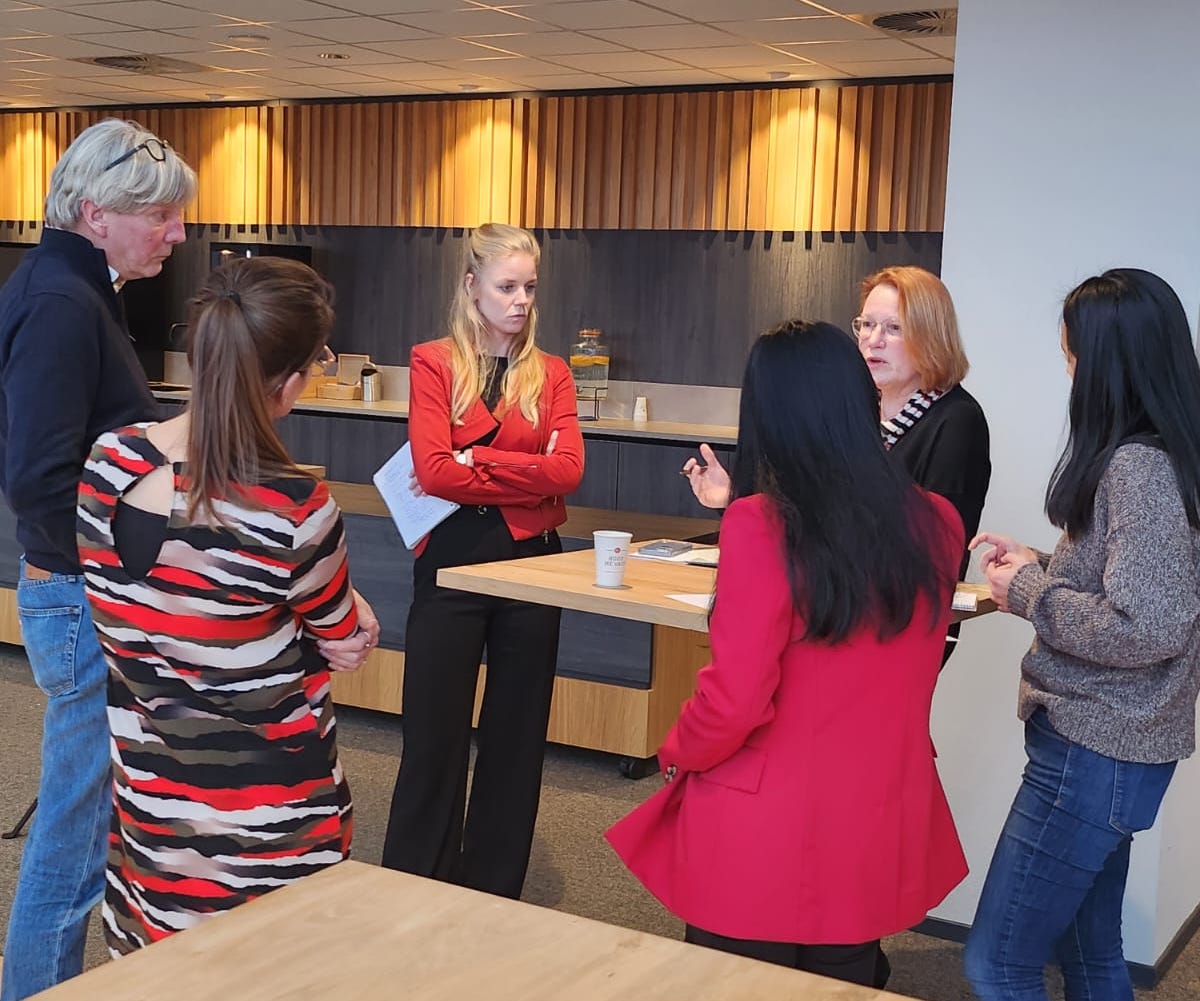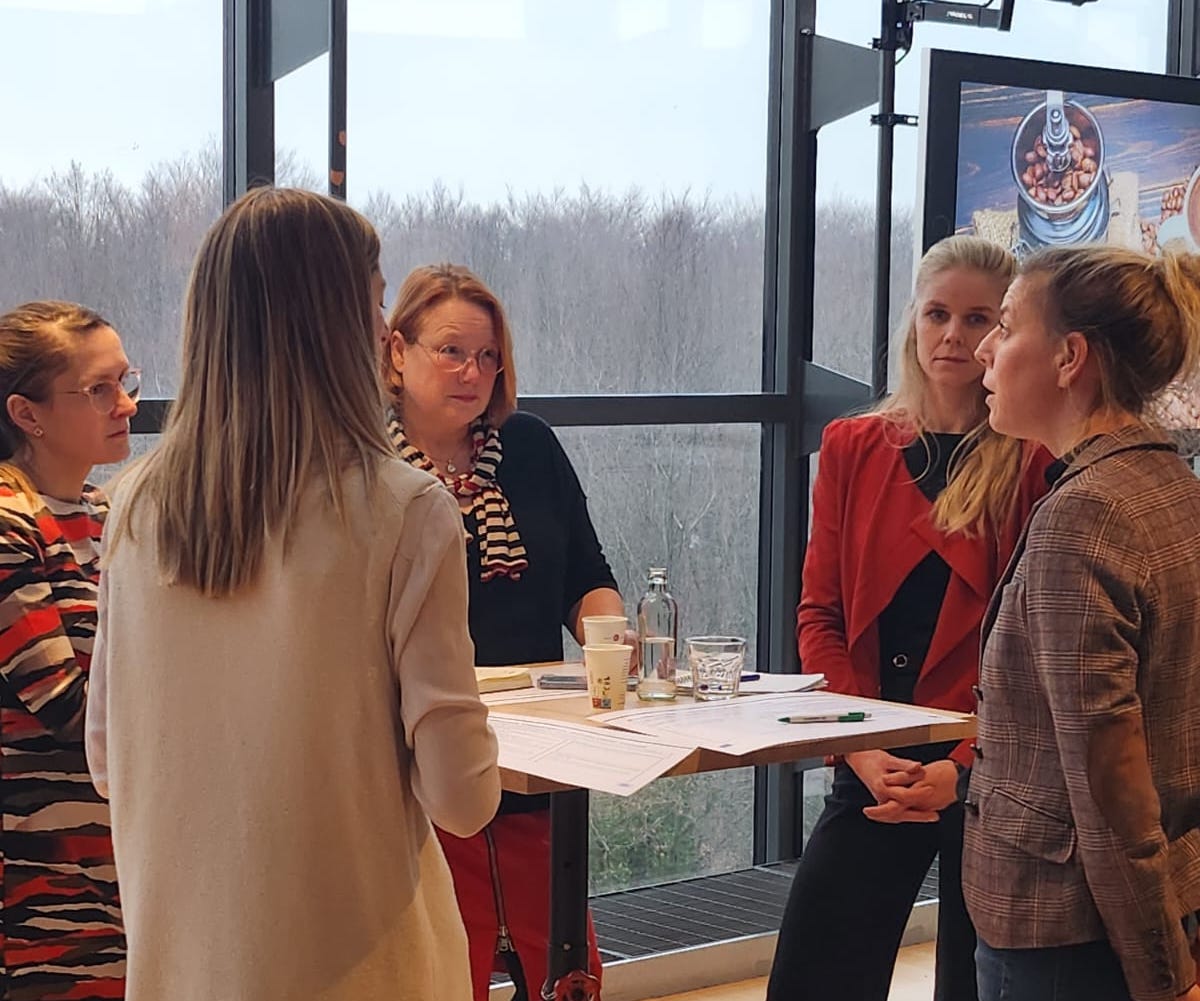Gaining new insights through peer learning to tackle climate change
This year, UN Global Compact Network Netherlands is piloting two peer learning groups, one on Gender Equality and one on Climate Action. The goal is for the participating companies to learn more about these important topics, to dig into the challenges that they are facing, and to exchange best practices that can help overcome these challenges. This blog is the first of many in which we aim to capture our companies’ peer learning journey.
Expectations by the United Nations
The tone of the UN Secretary-General changed a lot recently. He made clear that there needs to be urgent and short-term action. Where COP26 mostly focused on the planning of actions that need to be taken, COP27 focused on the implementation question. We need to reach ‘net zero’ by 2050. But what does this mean? This means that a company’s total greenhouse gas emissions are less than or equal to the emissions it removes from the atmosphere. Companies are expected to have long-term targets with emission reductions of at least 90% by 2050. At that point, a company must use carbon removals to neutralize any limited emissions that cannot yet be eliminated. The Science Based Targets initiative has developed a Net-Zero Standard, to make sure companies’ emission reduction targets are in line with the Paris agreement.


Shared challenges
During the peer learning group session, there were a few moments when people were divided into different groups, so they could discuss challenges regarding the complex task of reducing a company’s emissions by 90%. A few examples of shared challenges are the difficulties with getting a complete overview of all emission factors in all scopes, how to use credible data, and how to get the C-suite and middle management onboard and on the same page. Increasing the scope 3 (all indirect carbon emissions) boundary requirements from 67% for near-term SBTs to 90% for long-term SBTs will be challenging, but it will also drive major opportunities to collaborate across the value chain to support suppliers and customers to decarbonize. Discussing these shared challenges with companies from different sectors can create new insights into this complex problem.
Priorities
During the first session, one of the goals was to get a good overview of the priorities that the companies want to work on throughout the year. A topic that came up several times had to do with processing data related to scope 3. From the conversations, the conclusion could be drawn that a useful database to fill in the important data is very much needed. This may be a practical question but very important nonetheless, especially when it comes to a company’s credibility. When a company is working on emission reduction, it is essential that they can actually prove through data how they reduce at scale across all scopes. There are more than enough standards and reporting frameworks (CSRD, GreenDeal, our Communication on Progress, etc.), but this can also be confusing. Other questions that came up included “how to make the organization (on different levels) learn about science-based targets” and “what realistic emission reduction strategies are there?”.
What’s next?
We will be discussing these questions regarding credible data, emission reduction strategies, and internal and external stakeholder management, in our upcoming peer-learing group sessions.
